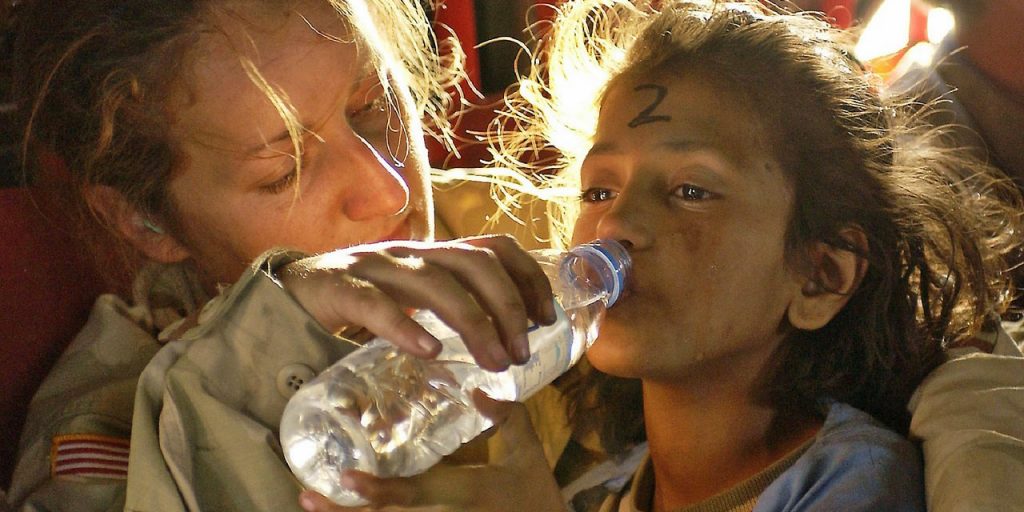Anger with the Home Office is growing among local authorities bearing the brunt of funding rules for unaccompanied asylum-seeking children. Chris Smith investigates.

Local authorities supporting unaccompanied children who are victims of war or environmental disasters are warning they cannot continue subsidising national commitments due to their own budget pressures.
London Borough of Croydon has revealed it is making up a £10m shortfall and Kent County Council this week called for the government to refund the £6.1m it has spent over the past two years on unaccompanied asylum-seeking children (UASC).
London Borough of Haringey revealed earlier this year that its budgets had been hit by extra spending costs and Portsmouth City Council is also facing challenges.
According to the Home Office, 34,600 children have been given protection since the start of 2010.
Last year alone, the UK received 2,872 asylum claims from unaccompanied children. This represents 15% of all asylum claims from unaccompanied children in the EU in 2018.
The department revealed there are currently nearly 4,500 unaccompanied asylum-seeking children in local authorities in England.
But the spread is focused on London and arrival points into the UK while central government is not funding post-21 care costs.
Figures from London Councils reveal as of 31 March last year, London boroughs were looking after 1,500 UASC – a third of unaccompanied children seeking asylum in England.
As a result, 19 London boroughs reported a cumulative funding pressure of £11m for UASC.
The Home Office announced in May it has revised up its funding formula but councils have told Room151 that it is only part of a problem that began in 2015 when the war in Syria dramatically escalated.
Three issues are driving the current problems:
- The funding covers young people up to the age of 21 but local authorities have a legal duty of care up until the age of 25;
- The Government rules for UASCs are that no council should take more than 0.07% of the total number of arrivals but this is voluntary and the dispersal scheme is not working;
- The backlog on asylum appeals mean councils will have to fund cases until a decision is made on granting leave to remain.
Croydon Council is involved because the Home Office’s asylum intake unit which processes claims is based in the borough, making it the first point of call.
Over the last five years, the council has processed 5,000 children.
Simon Hall, Croydon’s cabinet member for finance and resources, said: “We are supposed to have 65 young people; we actually have 300.
“This has been going on for a long time but in recent years, it’s become acute.”
The added bill for post-21 care leavers means other councils have not rushed to help under voluntary dispersal arrangements introduced in 1999.

Hall said: “The increase in numbers and changes in how you get money from the Home Office means there’s a mis-match between funding and costs.
“Because the dispersal agreement is voluntary, other authorities don’t want the burden. A national scheme isn’t working.”
Kent revealed it currently has 281 unaccompanied children in care and 895 care leavers to fund.
It is facing a deficit of around £600,000 for this year and is lobbying the Home Office to refund the £6.1m costs for the previous two years.
Kent’s chair of children and young people, Cllr Roger Gough, said: “We’re not at anything like the levels of 2015 but we are again running at much higher levels. Over time they will become care leavers. There has been a significant drying up of other local authority support.”
Portsmouth City Council is a port for ferries from France and Spain.
A report to councillors revealed: “Between April 2016 and March 2017 we received 39 UASC into the city and into the care of local authority.
“Between April 2017 and December 2017 we received a further 60 UASC into the city and into the care of the Local Authority.”
The council estimates the costs of support will be an extra £1m in 2018-19.
Services hit
For Croydon, the impact has been on non-statutory services. Hall warns it will also impact on community cohesion.
“It’s putting pressure on things like parks, leisure services and early years.
“We could transform a number of services if we had the money. We could extend free swimming for under-16s and more but we can’t,” he said.
“We’re committed to providing excellent care for children who have already experienced trauma but it puts a squeeze on everything else.”
There is growing concern that numbers may be about to increase, due to heightening conflicts.
According to the Refugee Council, the majority of arrivals are from Afghanistan, Syria, Somalia, Eritrea, Albania, or Iran.
With international tensions rising, councils say the Home Office needs to be ready and resolve the funding issues.
London Councils said: “The scheme, or a successor scheme, must be made fit for purpose and provide a collective solution to the challenges local authorities face.
“Future funding of local authorities needs to accurately reflect the costs they incur from caring for these vulnerable children and young people.”
In a statement, the Home Office told Room 151 it is addressing the funding issue.
A spokesperson said: “The UK has a proud history of hosting, supporting and protecting those in need, including some of the most vulnerable children affected by the migration crisis.
“We recognise that local authorities do incredibly valuable work in looking after unaccompanied asylum-seeking children and are committed to supporting them, which is why we announced earlier this month that we would be increasing funding we provide as a contribution to their costs.”
However, Hall remains unconvinced: “When things were bad in 2015, we stepped up and sent a team of social workers on notice to Calais to help.
“We had immigration ministers thanking us and praising the quality of our work. They haven’t matched the praise with money and long-term there is a cohesion issue.
“National dispersal needs to work. The shire councils need to take their share – and I think Brexit may be a factor.
“The Home Office knows they are not doing the right thing. They know there is something wrong and that they need to step up. They need to get this right.”













